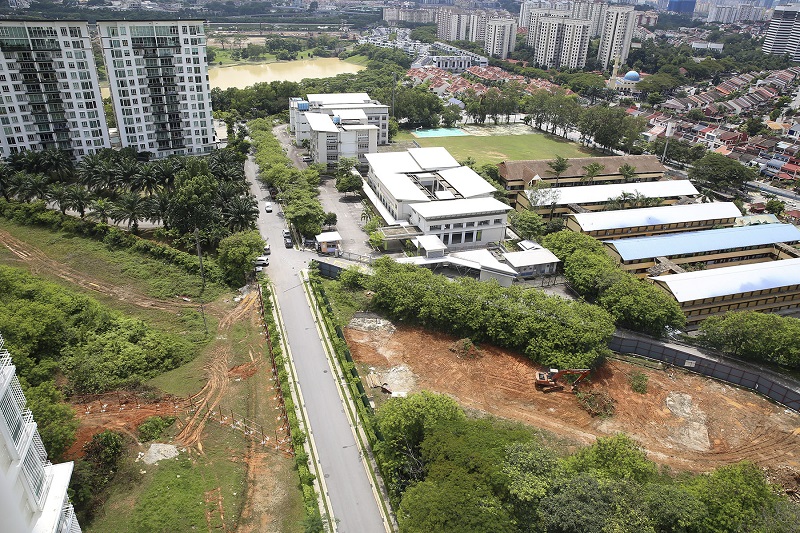KUALA LUMPUR, Nov 13 — Trying to challenge new property developments in your neighbourhood can be difficult when information or funds are lacking, as residents in Taman Desa are learning.
Lawyer Syahredzan Johan, who represents the 11 Taman Desa residents who are suing the Kuala Lumpur mayor for granting planning permission for a new condominium project called The Address, noted the various challenges faced by residents.
“I think the most important thing here is lack of information provided by the authorities.
“For example in the case that the residents have filed, they found out by chance, they did a search on the OSC website, they found out planning permission had been given. That’s because they actually took the effort to try to find out, if not this information is not freely available,” he said during a news conference here on Saturday.
He explained that his clients had attended an objection session in September 2016 but said Kuala Lumpur City Hall (DBKL) officials failed to address their concerns.
Subsequent requests for DBKL to notify the Taman Desa residents if the project was approved was also ignored, they claimed.
It was only in February 2017 when the residents performed a search on the government’s One Stop Centre (OSC) portal that they found out planning permission was given in December 2016.
They filed their lawsuit on March 13 to quash the planning permission, the same day authorities issued a development order for the project.
Syahredzan noted that the court process is costly, an option which ideally should not be necessary for residents to have their concerns heard.
“You have to also remember that bringing a case to court costs money, there are financial considerations. If say for example the process works as it should work, where information is given freely, where the objection session is actually effective in making changes and putting forth the residents’ concern, people would not have to resort to go to court.
“But we have a process where it appears that the process is either not followed or is not effective, and that’s why we have a situation where residents have to basically crowdsource, find funds in order to challenge authorities in court,” he said.
He also said it may be difficult to get the court’s nod for lawsuits to go on if court cases are filed 90 days after DBKL issues a development order for a project.
Syahredzan was speaking at a press conference last Saturday by the Save Taman Desa coalition, which highlighted 13 upcoming projects in the neighbourhood that they said would double the current estimated population of over 38,000 in the mature residential area.

The Taman Desa residents were asked why they had chosen to file their legal challenge over only one project named The Address.
KY Khong, one of the 11 residents who brought the lawsuit, replied: “That is the project that was brought to our notice, so the 11 of us took the initiative to take up a case against DBKL. That sets the precedent.”
M. Gunasekar, one of the Save Taman Desa coalition spokesmen, noted that residents sometimes only become aware of projects after the 90-day window to file for judicial review.
“We never knew project number six existed until we accidentally found out, when we were searching in the OSC website and we found there is development of two towers.
“And we went asking residents who were living in that place and they said we never saw any sign boards. But it was approved in 2016. So the developer, the authorities are depriving the citizens of their legal rights,” he said as an example.
“We were aware of project number one, two, five, the remaining we were not aware, never notified by the authorities, so we were deprived our legal rights to object, to voice our concern,” he claimed when asked if Taman Desa residents were given the chance to object to all 13 projects.

Tee Arasoo, another of the 11 plaintiffs in the same court case, confirmed that crowdfunding was used to prepare for the legal expenses.
“I think when we got the news and we went around, very quickly we managed to raise a fairly decent amount of money from the affected condos as well as across Taman Desa—residents who were also equally concerned over the proposed rapid development in Taman Desa. So really we didn’t really have much issues in raising funds that we think would be necessary,” he said.
The High Court has already granted leave for the 11 residents’ lawsuit to be heard but has yet to fix a hearing date.
The court will first hear on November 29 an application by the developer to be made a party to the lawsuit and which the 11 residents are objecting to.
The residents have also applied for a court order to stay the planning permission, as they claim that the developer appears to be proceeding with the project despite the lawsuit.




















